Blogs
Close partnership underpins success of UCT cleaning supply contract
The University of Cape Town’s decision to take direct control of its cleaning operations at all its residences and campus has led to a new dimension in how the university approaches cleaning and keeps a high-traffic, sprawling environment clean.
The task to keep the university’s high-traffic environment clean falls to hundreds of cleaners who are expected to understand which chemicals are needed in a mix of many different environments across the campus.
“We are extremely proud to be the designated cleaning products supplier to UCT,” says Emma Corder, MD of Industroclean. “The transition for the university from an outsourced to an insourced cleaning solution was a complex undertaking.
The university’s restructuring of their approach to cleaning was a complex undertaking. There has been improvement in the control over the cleaning supply chain.
Industroclean is South Africa’s leading manufacturer and distributer of cleaning products that services many blue-chip clients. It is the local agent and manufacturer of cleaning equipment brands such as Nilfisk and WAP and manufactures a range of cleaning chemicals for all applications.
As the university’s official supplier of cleaning equipment, Industroclean works hand-in-hand with cleaning staff, their supervisors and managers and conforms to UCT’s high regard for the health and safety of their staff. The direct communication ensured that the correct cleaning products are in the correct location as and when needed.
This is no easy task considering this includes 30 student residences.
The cleaning industry in general is prone to high levels of staff absenteeism and staff turnover which could impact on knowledge of and correct use of products but
close co-ordination, training and frequent communication are key to delivering a consistently high quality of service, supplies and support. “We have undertaken extensive testing, demonstrations and training with UCT cleaning staff to establish standardised procedures and methodologies across all facilities” Corder says.
Neerasha Naidu, Senior Coordinator of Residence Cleaning at UCT explains this process started with Industroclean first developing a clearer picture of the university’s needs and environment.
“Based on this information, the account manager was able to guide and advise on products and customised a chemical plan. He introduced us to the 100ml concentrates, which are decanted into buddy jugs. These buddy jugs are labelled and colour coded and chemicals are decanted into spray bottles that match the buddy jug. In this way there is no confusion,” she says.
Among the measures that Industroclean has introduced is the colour-coding of cleaning tools and materials. This helps to keep tools for cleaning high risk areas, such as basins and toilets, separate from those used to clean kitchens and common areas.
Naidu says the training helped to reduce delays in the transitioning period for the permanent staff members.
Further improvements in stock control have been achieved by consolidating the range of products to better suit each location. This rationalisation simplifies the daily maintenance routine because each tool and product is fit for purpose, and has improved Industroclean’s ability to respond to orders.
Corder says the team dedicated to the UCT account aim to deliver all chemicals to each of the residences within two days of receiving an order. This requires tight stock control by Industroclean, and anticipating orders based on historical data.
Despite the challenging logistics, Industroclean has helped UCT develop an effective hygiene programme by identifying a core range of products and adapting these accordingly.
This means that bathrooms in residences and public spaces have been allocated the highest priority. Regular cleaning of facilities and functioning handwash dispensers are the primary tools in this battle against the spread of harmful bacteria.
Another focus area for cleaning, specifically in educational facilities is the vinyl flooring which is deep-cleaned during the longer holidays by stripping and sealing and maintained throughout the year.
Industroclean focuses extensively on maintenance cleaning. “A daily cleaning routine is imperative to keep bacteria at bay. Should one fail to do so, a deep clean would be required to get a facility back to acceptable levels.” says Corder.
“And that is a step that we try to avoid through rigorous adherence to the daily maintenance routine. A deep clean is costly because of the added time, materials and sometimes specialised cleaners that are needed if dirt and grime is that engrained.
“A holistic approach to a cleaning regime for any facility, irrespective of the industry or environment, makes sense at every level, not only financially. And we are delighted that our partnership with UCT is delivering the results we can all be proud of.”


